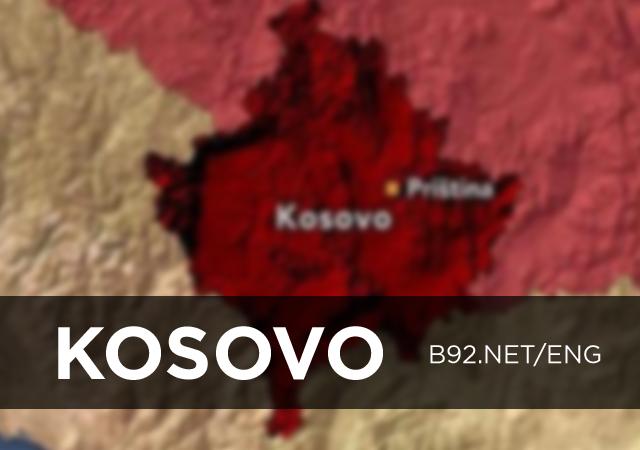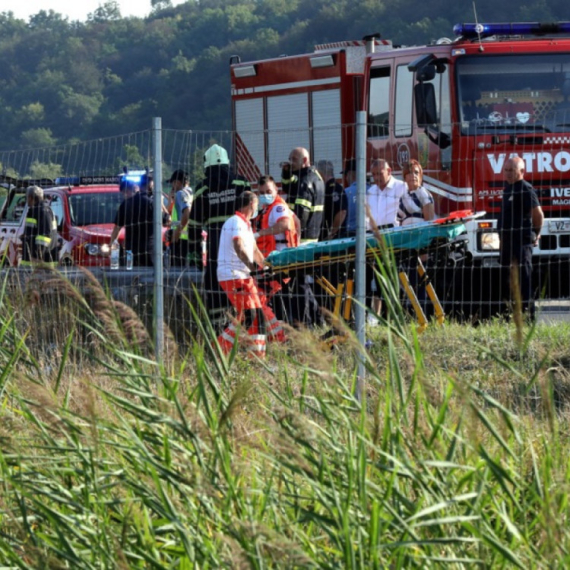In search of consensus: What is Kosovo’s red line?
Friday, 23.02.2018.
13:25

In search of consensus: What is Kosovo’s red line?
IntroductionThe dialogue for the normalization of relations between Kosovo and Serbia is currently at a rethinking stage. The European Union sees the process as an important part of its Western Balkans enlargement strategy, with the success of the dialogue openly set as a prerequisite for bringing Kosovo and Serbia closer to the EU. Kosovo's progress is more complicated, due to the non- recognition of independence by five EU Member States, while Serbia’s path to membership is wide open, if it reaches a comprehensive normalization agreement with Kosovo.(1)
To date, despite the fact that the dialogue has become a central condition for the advancement of Serbia and Kosovo towards the EU, it remains fragile, as evidenced by the assassination of Kosovo Serb politician, Oliver Ivanović, in Mitrovica North. Just hours after the crime, the Serbian delegation in Brussels decided to withdraw from meetings expected to revive dialogue after more than one year.(2)
Nevertheless, the long period without tangible results from the dialogue, permeated by frequent tensions and without full implementation of reached agreements, encouraged an accord between parties to rethink the Brussels dialogue. Changing the format and content of dialogue was demanded much earlier, especially in Kosovo, but it was decided to do so only after it was evident that the dialogue was stalling for a long time.(3)
Expectations at the EU were for the dialogue to rise to the presidential level, suggesting the establishment of a more enabling environment for reaching a final agreement for normalizing relations between Kosovo and Serbia. On the Serbian side, the dialogue is already being led by President Aleksandar Vučić. In Kosovo, it has been quite some time that the Office of the President of Kosovo, Hashim Thaçi, is attempting to take the lead in the dialogue.
Nevertheless, although the issue of the representation of parties found a captive audience in Kosovo, by all means the seminal issue is the format of the future dialogue, and especially the expected target placed ahead of parties: the content of the legally binding agreement.(4) Or, as stated by an official of a powerful EU state: “The dialogue cannot continue without knowing what should happen at the end of it...it is necessary to have a light at the end of the tunnel if we want to get there”.(5)
Consequently, the main question at the moment is what, exactly, may the final agreement contain. So far, Kosovo has insisted that the dialogue should be concluded with mutual recognition between Kosovo and Serbia. However, Serbia has insisted, at least publicly, that “it shall never recognize an independent Kosovo”
Game of Vučić
Internal Dialogue in SerbiaYet, some diplomats and observers believe that there is already some sort of movement from the Serbian pushback position, and that current President, Vučić, is open to “creative solutions” that may lead to a “historic agreement” between Kosovo and Serbia.(6) Moreover, the so-called “Internal Dialogue on Kosovo”, which Vučić initiated as a process that would have to produce a new and consensual Serbian position on Kosovo, is seen as a mechanism that will enable Serbia to change its heretofore position.(7)
“We believe that Vučić is ready to move from the heretofore position. He has already given signals that he is preparing to do so”, says a European diplomat.
On the other hand, a good few pundits and observers of developments in Serbia insist that the entire internal dialogue “is a farce”, staged by Vučić himself, with the aim of giving the Serbian public the impression that “the President is consulting the people”.(8)
“Vučić has already decided what to do...he is merely acting as if he is expecting proposals and suggestions from the internal dialogue”, says an independent observer from Belgrade.
In fact, several Western sources have confirmed that Vučić has long since started informal talks in various Western circles, where he is presenting options acceptable to him.(9)
What is Vučić presenting as an acceptable concession on his part? According to a senior European official, in talks with Western diplomats, Vučić is informally noting that he may remove the reference to Kosovo in the Serbian Constitution, and, eventually, may withdraw opposition to Kosovo’s membership in the UN.(10)
While it is not clear what exactly he is demanding in return, diplomatic sources estimate that Belgrade in general will not move if there is no implementation of the agreements already reached, meaning first and foremost the establishment of the Association of Serb-majority Municipalities in Kosovo.(11)
Observers from Belgrade warn that the establishment of the Association of Serb-majority Municipalities could be put forward by Vučić as a prerequisite for removing the reference to Kosovo from the Serbian Constitution.(12) “In that case, Vučić could offer Serbia’s agreement for Kosovo to take get a seat at the UN to be part of the final normalization agreement”, says the observer.(13)
According to diplomats, Serbia’s agreement to a Kosovo seat at the UN would be a “major concession”.(14) Officials in some European capitals believe that if Belgrade agrees to Kosovo’s membership to the UN, then this would invalidate the opposition argument by some states that do not recognize Kosovo’s independence, including five EU Member States.(15)
However, as Western analysts note, the barrier to Kosovo’s membership in the UN is primarily Russia, not Serbia. “The Russian veto on the Security Council is not something that can be eliminated as an opportunity by Serbia...the Russian veto can be eliminated as a barrier by Putin alone”, says a European analyst.(16)
According to these sources, the offer of a seat at the UN from Vučić is bait that Kosovo should not take.(17)
Partition Still on the Table?
Nevertheless, in recent weeks, especially after Ivanović’s assassination, official statements seem to lead to the conclusion that Serbia, to a large extent, does not expect to reach an agreement with Kosovo. Serbian Foreign Minister, Ivica Dačić, recently stated that EU expectations that an agreement on the final resolution to the relations between Kosovo and Serbia could be reached during 2018 are “fairy tales”.
“My skepticism is reality based, and that means that when someone speaks of reaching a resolution to the Kosovo issue, those in the West mostly think that we must recognize the unilateral declaration of Kosovo’s independence. If these are the expectations for 2018, I can say with full confidence that these are fairy tales”, said Dačić in an interview with Radio Television of Vojvodina.(18)
Dačić also designates as “fairy tales” allegations that Serbia could open the way for Kosovo to the UN. “Ultimately, the decision of permanent members of the Security Council will depend on Serbia, while Russia and China will respect Serbia’s decision”, said Dačić, clarifying that: “That we suggest to Russia to allow Kosovo into the UN and vote for such a thing...it is not a fairy tale, it's a mirage”.(19)
Such a posture from Belgrade comes at a time when the European Union is preparing its new Western Balkans enlargement strategy, which, in fact, sees Serbia as the first country in the region in the order of accession. Moreover, Serbia and Montenegro are the only two countries for which the European Commission has provided an indicative date for EU accession: 2025.(20)
Therefore, while Brussels offers Serbia a clear path for EU accession, under the condition of reaching “a comprehensive normalization agreement in the form of a legally binding document”(21) with Kosovo, which does not imply recognition of Kosovo’s independence, Belgrade resists by warning that reaching a final Kosovo-Serbia agreement within the deadlines set by the EU “is unrealistic”.(22)
What is, then, realistic, according to Belgrade?
If we were to ask Dačić, he has already stated publicly several times: “I am trying to propose a long- term solution based on a compromise of historic and ethnic rights, which implies setting the boundaries of what is Serbian, and what is Albanian.”(23)
And, while Vučić did not support this idea publicly, he did not object to it either, while Dačić spoke extensively about it often, elaborating that partition or exchanging territories between Kosovo and Serbia would be “the only realistic long-term solution”.
Be that as it may, the indicative factor in these developments is not the fact that Dačić spoke of such a solution to the “normalization of relations”, but rather the fact that few have responded to such statements by Dačić, which, after all, are in direct contravention to the position of EU and the West on Western Balkans against changing borders and divisions along ethnic lines.
As a matter of fact, according to diplomatic sources and independent analysts, in informal meetings with elected officials and some influential personalities in the West, Serbian President Vučić himself discussed the partition of Kosovo or exchanging territories between Serbia and Kosovo as a potential solution that may be acceptable to Belgrade.(24)
According to an official of a European state, the problem is not that from time to time Serbia has been launching this idea. “The problem is that we see an inactivity at Mogherini’s office; it has neither set red lines for such topics, nor does it react at all when such things are said...while we note a meaningful silence by some in Pristina, as well.”(25)
According to sources, there are at least three EU states that have raised this issue with Mogherini’s office, insisting that the EU should have a clear limit that cannot be crossed. “And, partition of Kosovo, or exchange of territories, or change of borders, is not acceptable.(26)
This was confirmed by an independent European analyst, who said that the parties have already been warned that partition or exchange of territories cannot be discussed. “Certainly, in the European capitals, they are aware that this would have a serious impact on the whole region, primarily on Bosnia and Herzegovina, and would be at odds with everything we have done in the last 25 years in the Balkans...hence there are those who are determined that this should rule out, without any dilemma.”(27)
However, close attention should be paid to developments in the near future, when the so-called “internal dialogue” is expected to be concluded in Serbia.28 While those well versed into circumstances in Serbia generally agree that “Vučić’s Internal Dialogue” has been designed to provide the Serbian President with an alibi for any decision he wants to make in relation to Kosovo, recent events after Oliver Ivanović’s assassination seem to be a cautionary tale that not everything may go smoothly, while the consequences will nevertheless affect Kosovo as well.(29)
One of the circumstances that must be taken into account is the assassination of Oliver Ivanović. According to a source close to the Government of Kosovo, the slain politician was “perhaps the biggest and most credible opponent of partition of Kosovo” among Kosovo Serbs. “Consequently,
the elimination of Ivanović, in addition to creating tensions in Kosovo and providing a reason to Belgrade to interrupt the dialogue once again, has also sown fear among Kosovo Serbs, and reinstated partition as an option.”(30)
Kosovo in chaos
Kosovo, however, does not seem well protected against these threats. While recent developments in Kosovo, Serbia and the Brussels dialogue have already raised alarms within the EU, Pristina itself does not seem to take note of this extremely unfavorable context for Kosovo, in which the moves of Vučić and Serbia are taking place.Thus, while the EU prepares a new Western Balkans Enlargement Strategy, which will determine the pace of European integration for many years to come, Serbia is attempting various games and balancing acts between the West and Russia to ensure a favorable position for itself towards Brussels. On the other hand, political chaos continues to prevail in Kosovo. The country does not have a consensual stance on virtually any fundamentally important issue, including the dialogue and its ultimate outcome. Different parties have opposing approaches to the process, from those who support participation in it as a process with “no other alternative”(31), to those who oppose the current dialogue at any cost.(32)
However, the lack of consensus on the dialogue now does not seem to be the biggest problem for Kosovo. Since December 2017, the country has been plunged into an even deeper political crisis; the initiative to abolish the Specialist Chambers has shaken the relations with the biggest advocates of Kosovo’s statehood, including the United States.(33)
On the other hand, recent efforts to overturn the Specialist Chambers, in addition to deepening the political crisis in the country (starting with the dispute over the demarcation with Montenegro), have worsened relations with the key Western states that are generally considered to be the greatest supporters of the independence of Kosovo. Under such circumstances, with a EU that is anyway more interested to bring Serbia closer,(34) cooling relations between Kosovo and the Quint countries, and absence of any internal political and social consensus, it is clear that Kosovo has a much weaker position in the dialogue as well.
However, while it has already proven difficult, if not impossible, to reach a consensus on strategic issues, such as demarcation with Montenegro or the (in)validation of the Specialist Chambers, the possibility for Kosovo to reach a consensual position in the case of dialogue, at least in relation to Serbia’s intentions, should be attainable.
Red Lines
Regardless of further developments, Kosovo should be able to determine its own red lines in relation to the dialogue with Serbia, and the final agreement that the process may produce.Furthermore, analysis shows that it would not be unattainable for Kosovo to appear in dialogue with a new consensual position, which would concurrently be in line with the fundamental European principles, and supported by some powerful Western states, which have already have expressed their concerns regarding the Brussels process.
Such a thing - Kosovo having a position that is supported in principle by key Western countries - would also help increase pressure on the EU to keep the process within the limits of European solutions.
Thus, Kosovo’s red lines could include principles, such as:
- Same as all borders in the region, Kosovo’s borders shall be inviolable. Kosovo shall not be party to talks that allow the possibility of changing borders.
- Kosovo’s territory is one and inseparable. As such, it cannot be governed by anyone other than the democratic institutions of Kosovo, elected by the people of Kosovo, under the mandate set by the Constitution and the laws of Kosovo.
- The Brussels Dialogue is essential for peace and stability, not only in Kosovo, but throughout the region. Kosovo stands committed to participate in this process as a means of achieving normalization of relations with Serbia, through an agreement that cannot be in contradiction with European principles, standards, norms, and practices.
Recommendations to Kosovo Institutions, Government and Political Parties:
- Against Partition. The Government of Kosovo is bound by the Kosovo Constitution to oppose the possibility of partitioning Kosovo, or exchanging territories with Serbia. Consequently, it is an obligation of the Government, but also of the Assembly, the President, and other state institutions, to publicly challenge ideas of partitioning or exchanging territories, no matter the source.- New Dialogue Mandate. Kosovo institutions should urgently open the discussion that will lead to the establishment of a new mandate for participation in the Brussels dialogue. A new parliamentary Resolution is needed to vest the Kosovo team with authority to negotiate, as is referred in EU documents, a “comprehensive normalization agreement in the form of a legally binding document”. The repetition of a mistake that has been made in negotiations to date, where Kosovo representatives have signed an agreement without prior political parliamentary consensus, could have even more serious consequences than the political crisis caused by the Demarcation Agreement with Montenegro, and the agreement on the establishment of the Association of Serb-majority Municipalities in Kosovo.
- Seek Consensus. Although current circumstances do not leave room for high hopes, Kosovo institutions, political parties, as well as the Kosovan society, should not give up on the idea of achieving national unity on issues of fundamental importance to the state. The search for consensus should be a priority on the agenda of every institution in country, above all at the Parliament.
- The Government of Kosovo should set as its priority addressing the obligations deriving from the dialogue. Agreements reached in Brussels should be implemented if they are in conformity with the law, or should be modified to comply with Kosovo laws. Delaying implementation in any case provides arguments in favor of Serbia.
Recommendations to the European Union
- New Dialogue Principles. The European Union, or rather the EU External Action Service, should disclose the principles for the facilitation of the Kosovo-Serbia dialogue. These principles cannot be in contradiction with EU standards.- EU, Clearly and Openly Against Partition. The Mogherini Facilitation Office should come out clearly and publicly against any idea of partitioning or exchanging territories, no matter the source. Tolerating the discourse of ethnic division will only deepen distrust, not only between the parties, but also towards the EU, while partition in itself is not a solution, but merely a prolongation of the conflict.
- Equal Treatment of Parties. The mediator can succeed only if he treats both parties equally. The Mogherini Facilitation Office should show the same commitment to Kosovo’s advancement towards the EU, as it has for Serbia.
- The Role of EU. In the new, final stage of the dialogue, the EU should have a more clearly defined role, that goes beyond the facilitator's comfortable position, who takes no responsibility for anything in the process. An open discussion on the new EU role is necessary.
————————————————
(1) Conversation with a senior official from an EU Member State
(2) Oliver Ivanović was killed by unknown persons in the morning of January 16, 2018, the very day scheduled to resume technical dialogue between Kosovo and Serbia in Brussels, interrupted almost a year earlier.
(3 )Almost entire 2017 went by with frequent tensions between Kosovo and Serbia, stagnation in the implementation of agreements, and without any dialogue meeting at decision-making level.
(4) Some Western diplomats have emphasized the need to clarify the content of the concluding dialogue agreement.
(5) Informal conversation with an official from an EU country
(6) Conversation with European officials, as well as an independent observer from Belgrade
(7) Conversation with European officials, as well as an independent observer from Belgrade
(8) Conversation with European analysts and independent observers from Belgrade
(9) Separate conversations with a diplomat of an EU Member State, and a European official from Brussels
(10) Conversation with a senior official from an EU Member State
(11) Conversation with a senior official from an EU Member State
(12) Conversation with an independent observer from Belgrade
(13) Conversation with an independent observer from Belgrade
(14) This has been confirmed in several conversations, with both, Western diplomats and independent observers from Belgrade
(15) Of the 28 EU Member States, Kosovo has not yet been recognized by Spain, Slovakia, Romania, Greece, and Cyprus
(16) Conversation with a Western analyst
(17) Conversation with a Western analyst
(18) http://rtv.rs/sr_lat/politika/dacic-da-mi-sugerisemo-rusiji-da-pusti-kosovo-u-un-to-je-fatamorgana_887552.html
(19) Ibid.
(20) Draft strategy “A Credible Enlargement Perspective for Western Balkans”, a restricted document dated November 8, 2017, which the author has been able to access.
(21) Ibid.
(22) Dačić: http://www.politika.rs/sr/clanak/396939/Dacic-Price-da-je-2018-prelomna-za-Kosovo-su-bajke
(23) Dačić for Radio Television of Serbia, August 15, 2017; https://naslovi.net/2017-08-15/beta/dacic-razgranicenje-na-kim-eliminisace-uzroke-eventualnog-rata-izmedju-srba-i-albanaca/20335177
(24) Separate conversations with a European diplomat and a Western analyst
(25) Conversation with a senior official from an EU Member State
(26) Conversation with a senior official from an EU Member State
(27) Conversation with an independent European analyst
(28) There are indications that the “internal dialogue” in Serbia will end in March, when the Government of Serbia should formulate its new position on Kosovo.
(29) Ivanović’s assassination, in addition to happening in Kosovo, has also fueled debates and accusations against Kosovo by the Serbian Government and media close to the Vučić regime.
(30) Conversation with an analyst, close to the Kosovo Government.
(31) PDK, LDK
(32) Vetëvendosje
(33) The attempt to abolish the Specialist Chambers compelled the US Ambassador to Pristina, Greg Delawie, to react several times in just a few weeks, warning of the great consequences the country might suffer if this initiative is passed by the Assembly. His warnings, as well as those of the Ambassadors of the Quint countries (USA, UK, Germany, France, and Italy), were not taken into account by the heads of state, who still keep the initiative alive.
(34) Seemingly, the goal of bringing Serbia closer to the EU as fast as possible is more of a consequence of the need to keep Russian influence away from the region, rather than some special fondness for Serbia.























































Komentari 4
Pogledaj komentare